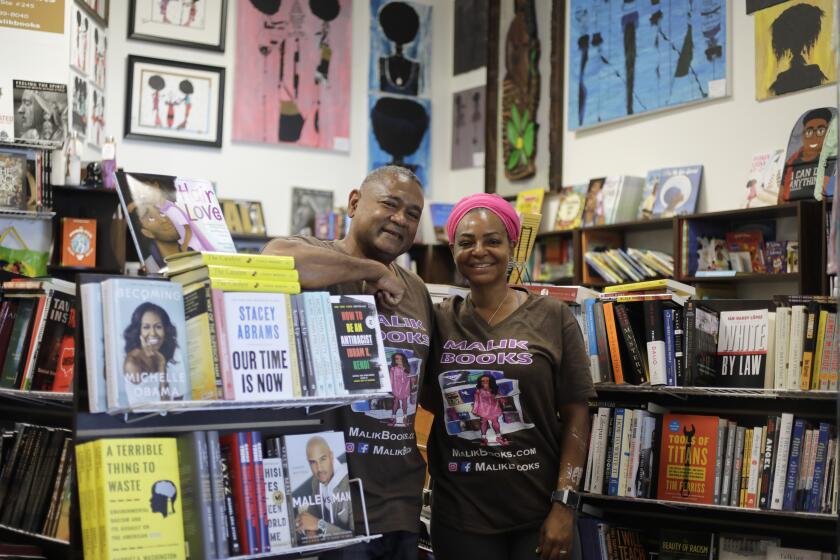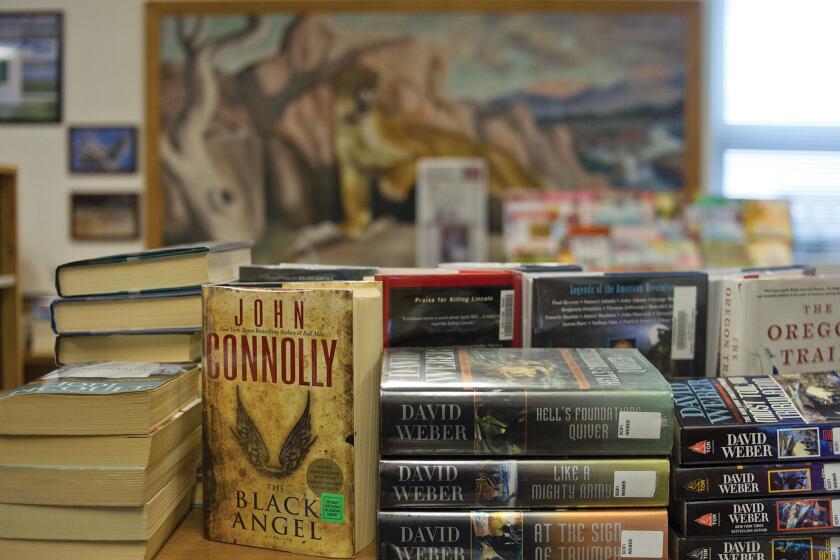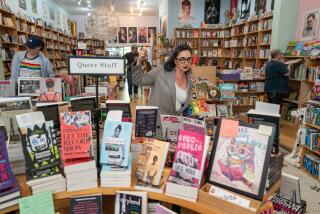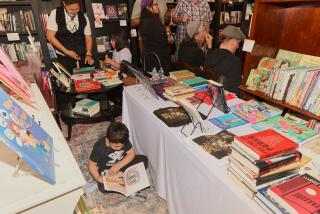She dreamed of a Black-owned bookstore in Inglewood. Now, she’s going to run one
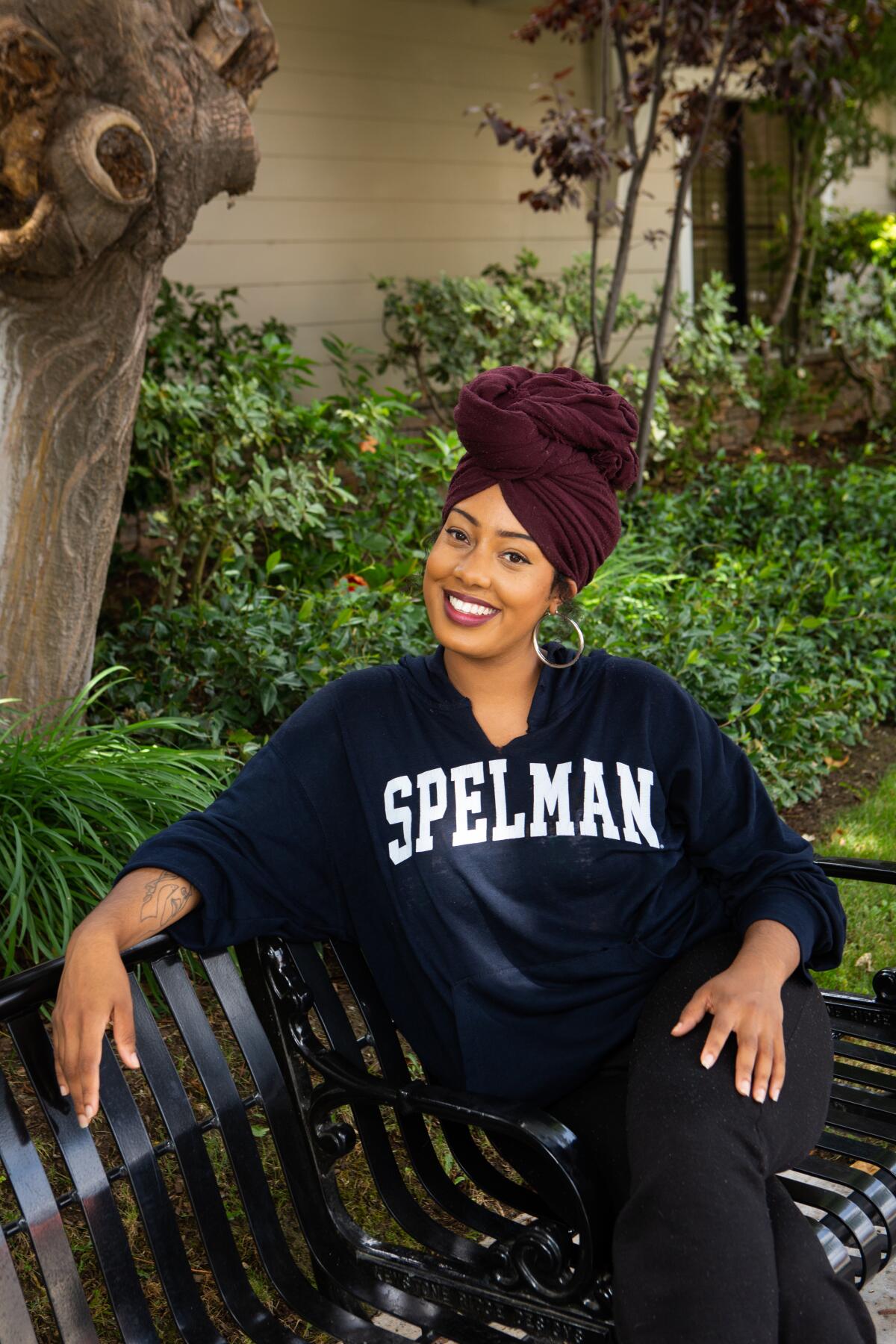
Asha Grant was always a bookworm. As a little girl growing up in Inglewood, she spent hours poring over stories like Debbie Allen’s “Dancing in the Wings,” Sandra Cisneros’ “The House on Mango Street” and Veronica Chambers’ “Marisol and Magdalena.” Her parents were delighted, but also frustrated by how challenging it was to find stories about young Black children.
“I just remember my mom searching for books that had girls that looked like me in them,” Grant said during a phone interview. “The labor that it takes for you to try to create that safe space for your child is just not fair.”
Grant has been working to make books with non-white protagonists more accessible. Last year, she founded L.A.’s division of the Free Black Women’s Library, and now she is planning a permanent space, a new bookstore, where young Black girls, women, femmes and gender-nonconforming people never have to search for stories that represent them, because they will be front and center. Thanks to GoFundMe and a surge of support in the wake of the Black Lives Matter protests, it will come sooner than she’d ever dared to hope.
The store will be called the Salt Eaters, in tribute to the novel of the same name by the author and activist Toni Cade Bambara. It had a deep influence on Grant growing up, “I feel that as I’ve grown older, the meaning has changed,” she said. “It’s about interdependency and community.”
The store will be a unique addition to a community of Black-owned bookstores in L.A. that has seen a surge of interest and sales from a diverse customer base ever since the death of George Floyd, which resulted in a reckoning across publishing over the need for greater diversity.
White-owned stores like Small World seek ways of promoting new voices, while Black-owned shops like Reparations Club tackle increased demand.
Grant’s love of literature led her to study English at Spelman College in Atlanta. After graduating, she moved to New York and earned a degree in English education, specializing in Black female education and literacy, from Columbia Teachers College. Today she works as a digital media producer, but opening a bookstore has been a closely held dream for many years.
Late last year Grant came across the perfect location for a store, on Queen Street in downtown Inglewood. “The fact that it is on Queen Street is just so beautiful and fitting.”
It was important to Grant that the store be in her home city, “in a place that was accessible to the community I’m representing and wanted to reach.”
Grant had begun to crunch numbers and talk to real estate agents when the coronavirus outbreak stalled her plans. But everything changed in the wake of the deaths of Breonna Taylor, Oluwatoyin Salau and others, as well as the Black Lives Matter protests that followed. Suddenly the project had an added sense of urgency.
“It propelled me and gave me courage,” Grant said, “It feels more dire now. We need to have physical spaces that are for us and uplift us when we move past COVID.”
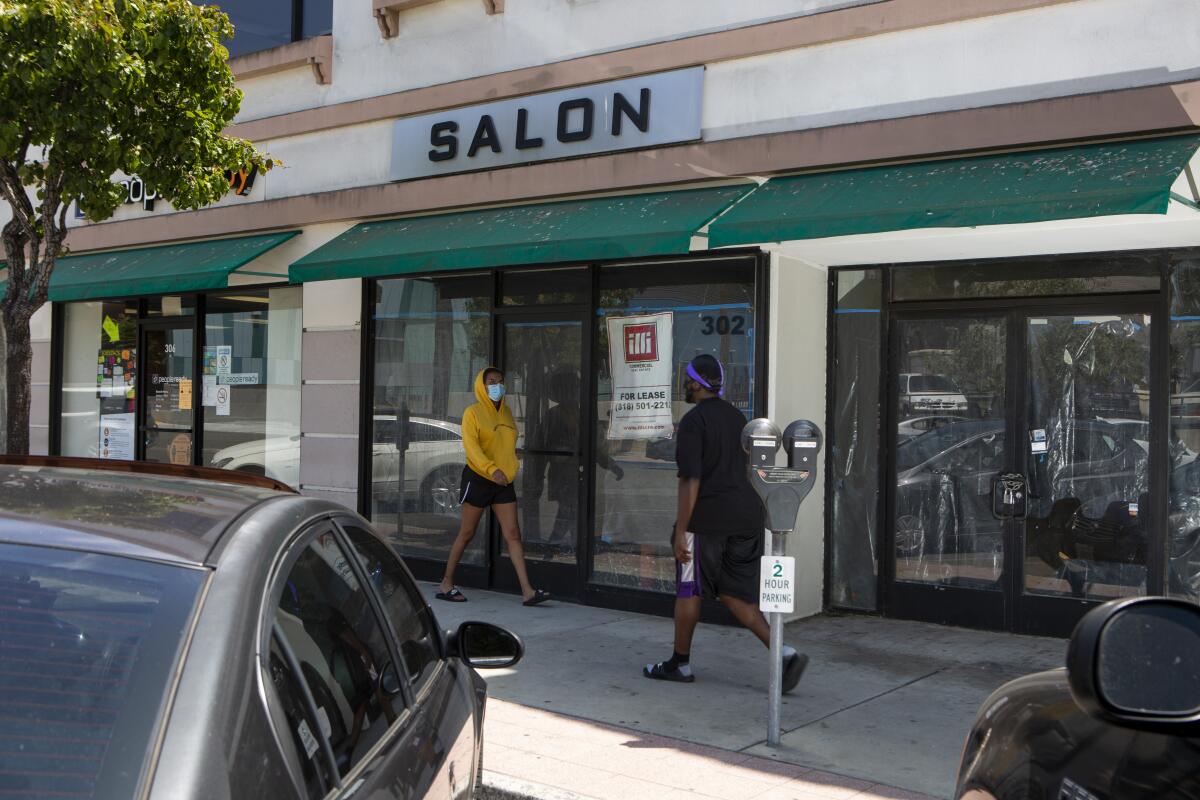
Grant created a GoFundMe page to raise money for the store on July 11, asking for $65,000 to cover the first year’s rent and renovate the space. Within 72 hours, she had raised more than $30,000. Within a week she met her goal. More than 1,500 people have donated, and money continues to pour in. Without formal investors, she needed enough capital to prove she could pay at least a year’s rent; now Grant has more than enough.
“I have never experienced this level of support around Black women and girls,” Grant said.
Helping the push was the prominent author and feminist Roxane Gay, who reposted the fundraising page on Twitter to her 750,000 followers, writing, “The Salt Eaters is a Black woman owned bookstore ... and they need your help to get off the ground.” The tweet was liked more than 1,000 times and reposted by hundreds of people.
Philana Payton, a postdoctoral student at UCLA who researches Black women in media, donated to the campaign. She said a place like this is long overdue: “It’s really, really difficult to find spaces in Los Angeles that are unapologetically dedicated to Black women.”
Payton added that a store devoted to Black literature will fill in educational gaps. “Our education systems fail us particularly when it comes to Black women and girls,” she said. “We are not taught about these authors.”
Outside support is essential to the success of the Salt Eaters and stores like it. According to the American Booksellers Assn., independent bookstores have expanded 7.5% over the last five years, but COVID-19 may reverse the trend. Grant also knows that Black women face additional challenges when it comes to opening a business. On the fundraising page she notes, “Only 0.2% of all venture capital funding was allocated toward startups founded by Black women in 2016.”
But momentum behind the Salt Eaters only seems to be growing. As of Wednesday, Grant has raised over $73,000. And other Black-owned indie bookstores in Los Angeles are excited about the new store. “Asha has a unique perspective and is a voracious reader of books by Black women,” said Jazzi McGilbert, owner of the Reparations Club, a concept shop that sells products and books by and for Black people. McGilbert knows Grant through the Free Black Women’s Library, which hosted many of its events at the Reparations Club. “She will bring her abundance of knowledge to curating that space,” McGilbert said.
Grant expects to open an online store in November and complete renovations for the bricks-and-mortar shop by early next year.
The #PublishingPaidMe campaign on Twitter revealed disparities. Where do we go from here?
Now that she’s plotting out the physical space, Grant says it’s important that the Salt Eaters feel warm and welcoming. “Indie bookstores, particularly white-owned and -operated indie bookstores, always made me feel like I had to move about the space being seen and not heard,” she said.
She envisions the store as a space where Black women — and Black people — feel comfortable and happy. “I want them to be able to be themselves, without feeling like someone is making assumptions about their value or contribution to a literary space.”
The store will be multiuse — a place for writers to work and readers to browse as well as a home for book clubs and babies. It will be full of color, quirks and of course books — lots of books. “When people come into the store and ask, what is this, I want to be able to point to the community and say this all comes from us,” Grant said.
For the future store owner, the last two weeks have been overwhelming, emotional and rewarding. “As a little girl, I wanted to have a bookstore, but I didn’t think that other people would be interested in going to a store catering to Black women,” Grant said. “But now I know people are as invested in our stories as I am.”
More to Read
Sign up for our Book Club newsletter
Get the latest news, events and more from the Los Angeles Times Book Club, and help us get L.A. reading and talking.
You may occasionally receive promotional content from the Los Angeles Times.
